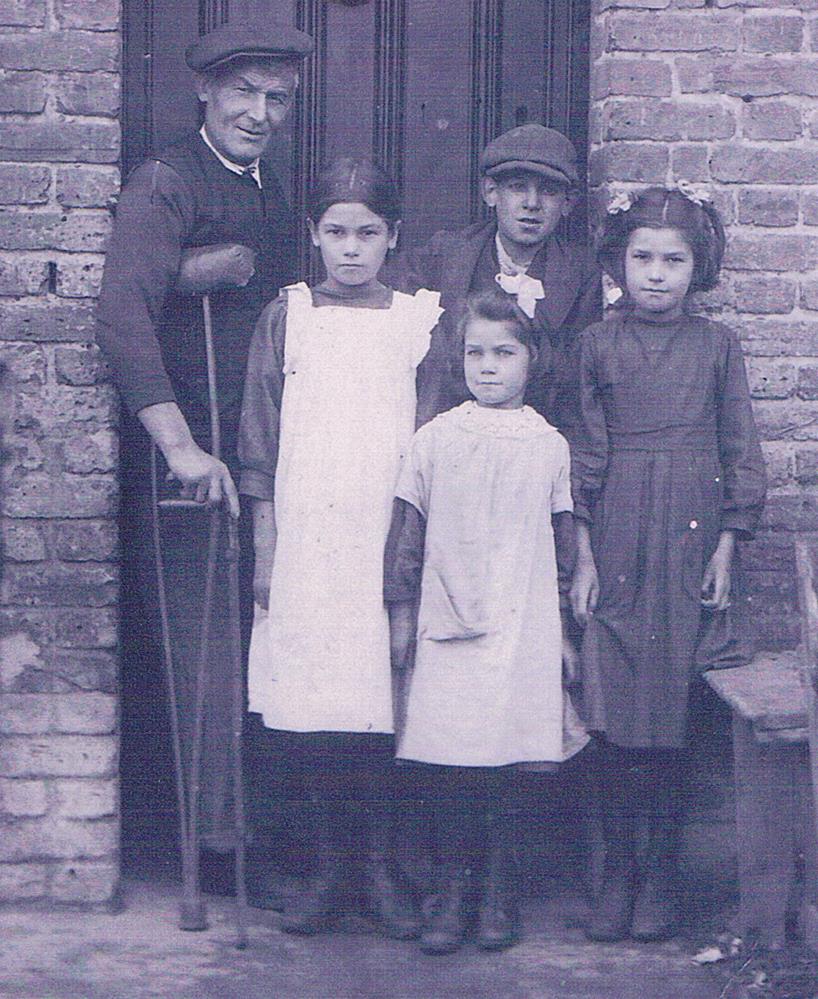Wheatley’s Crimea Veteran – Richard Summers

[Richard Summers lost a leg as a 23 year-old soldier in 1854. He married a Wheatley girl, they raised a family, and he ran a sweetshop on the High Street until his death in 1905.]
On 13 September 1854, newly trained, Summers disembarked with 2nd Battalion, The Rifle Brigade, onto the Crimean coast of Russia. Britain, France Austria and Sardinia invaded to defend the Turkish Sultan’s empire (the Middle East) against Russia. The allies marched south to besiege Russia’s naval base at Sebastopol. On 20 September, Summers with fellow light infantrymen, the Army’s scouts, skirmishers and snapshooters (snipers – ‘snapshots’), led wading columns across the River Alma towards Russian heavy guns on the opposite bank. There, in soaking order, the columns re-formed into lines abreast, but waited two hours for orders. Russian gunners fired 12 and 18 pounder rounds at them, as if bowling at human skittles, but breaking rank was punishable with flogging. Rifle-green jackets camouflaged better than red tunics (‘dust’ khaki appeared a decade later), but were no help against solid and fragmentation iron ball. Summers took a serious leg injury and was stretchered to the coast.
The leg was amputated, probably immediately on board ship. From the 1700 wounded at the Alma, 1200 seriously, 25 were amputees. Fortunately Summers’ 2nd Battalion Medical Officer had drawn a chloroform issue, the new anaesthetic, much of which lay undistributed in stores abroad. The Principal Medical Officer had advised against it: ‘bawling lustily [with pain] is better than sinking silently into the grave’, but front-line surgeons welcomed anything to reduce shock and pain and found it saved life in surgery. It needed trained administering, but it was better than biting a wooden block. [To be continued]
They amputated Rifleman Summers’ shattered right leg and evacuated him to base hospital at Scutari, Turkey, just as Florence Nightingale and other women began to shake up Army medical care. Behind him, 2nd Battalion Rifles helped attack Sebastopol, while the Russians counter-attacked Balaklava port and siege positions near Inkerman.
Summers came home via Corfu, Malta and Gibraltar, to an honourable discharge as a Chelsea Out-Pensioner (only a chosen few were In-Pensioners). He had signed on in 1849 aged 17, when Wellington was still CinC at 80, served five years in Canada, Turkey and Russia (and 40 days military imprisonment) in a grim British Army. A district officer delivered his pension (1 shilling 6 pence a day when he died, 1905) and kept an eye on him.
2nd Battalion presented veterans with their engraved silver Crimea medal and the Turkish Sultan’s medal inscribed in Arabic and Italian (the British strikes were lost at sea). Summers and Martha Tombs married in 1860, had children Hugh and Catherine, and ran a sweetshop in half of 55 High St (Ringland Cottage: note blocked second door). In the worst of winter, British children wore woollen headcover nicknamed ‘Balaklava helmets’. Hugh was a shoemaker on Bell Lane (Anne Ledwith found shoe-leather in the garden). Richard, Hugh’s son, named for his grandfather, died in France, 1918, and features on Wheatley Memorial. Gladys, Hugh’s youngest, lived in Bell Lane until 1980 1972 and died at Cullum House around 1988. (Kath Hillsdon remembers her as friend to Miss Flood, the Infants teacher, whose fiancée was also killed in WWI).
Tamsin Ingle generously shared her research, now filed in Wheatley Archive, and her curiosity!
Contributed by: John Fox, May/June 2013 Database reference ( if applicable): <nnn>, <era>
Leave a Reply